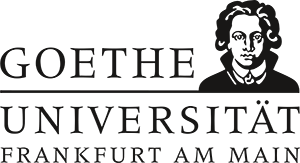The Academy for Islam in Research and Society (AIWG) at the Goethe University in Frankfurt conducts interdisciplinary research and knowledge transfer activities, focusing on Islamic religion and Muslim life in Germany and Europe. It serves as a hub for all eleven faculties and institutes for Islamic theological studies and Islamic religious pedagogy situated at German universities and other higher institutions of education. Three further institutes of Islamic theology at universities in Austria and Switzerland are also affiliated members. The Academy tackles issues of social participation by integrating religious perspectives. Founded in 2017, the AIWG has been continuously funded by the Federal Ministry of Research, Technology and Space.
Goals
The AIWG pursues three goals:
- Enabling research: The AIWG supports the integration of Islamic theological studies into the German academic landscape. It fosters collaborative and interdisciplinary research across university institutions and engages in international discussions.
- Facilitating knowledge exchange: The AIWG promotes dialogue among researchers, civil society actors and government representatives. Its aim is to craft solutions by incorporating diverse viewpoints on societal challenges.
- Encouraging in-depth and balanced debate: The AIWG is committed to enriching public discourse by bringing to light and disseminating specialised knowledge that is otherwise not widely known nor easily accessible.
Main activities
Research activities
The AIWG facilitates discussions, research projects and academic exchanges on Islam-related issues within Germany and internationally. This is carried out by means of an interdisciplinary and practice-oriented approach through a variety of different measures, including inter-university projects, a programme for early-career researcher, scholarships, publications and conferences. The academic work focuses on the following research areas: ‘Islam and the life-world’, ‘Text and norm’ and ‘Contextual Islamic theological knowledge production’.
Societal contributions
The AIWG focuses on questions of social participation and inclusion of minorities by incorporating research on religion and Islam. It not only provides forums for exchange between scholars, civil society and state representatives but also funds specific projects on current issues. Its publication formats aim to enrich the public debate on religion and Islam with new perspectives and expert knowledge.
International activities
The AIWG carries out projects with an international focus to promote long-term networking on issues related to Islam and Muslim life in Europe and North America. To achieve this aim, the AIWG organises interdisciplinary and transdisciplinary conferences and workshops involving governmental, religious and academic participants from various countries. Additionally, some of their research projects address questions in Islamic theology through a more global international exchange. Smaller-scale projects with international reach are also being implemented.
Our office
The AIWG office is based at the University of Frankfurt. The central decision-making body of AIWG is the Academy Board, which includes representatives from the cooperating academic institutions offering Islamic theological studies in Germany. The Academy Board also includes members from other disciplines as well as experts from Muslim civil society.
The AIWG activities are led by Prof. Dr. Bekim Agai (Director) and Managing Director Dr. Raida Chbib. A dedicated team coordinates and implements the work and numerous projects across various universities and within society. The work is structured across the following key departments:
- Administration and Controlling
- Science and Research
- Promotion of Young Scholars and Knowledge Transfer
- Science Communication and Public Relations
- Events
- Internationalisation
The AIWG is primarily funded by the Federal Ministry of Research, Technology and Space (BMFTR). The BMFTR is supporting the academy’s academic programs with €6.4 million in funding from 2022 until 2027. From 2017 to 2022, the BMFTR already provided €8.5 million for the academy’s work. The Mercator Foundation funded the academy’s transfer formats with up to €2.8 million until 2023. The Federal Foreign Office funded various measures as part of AIWG’s international programme between 2018 and 2022. Since 2023, the Federal Government Commissioner for Migration, Integration, and Refugees at the Chancellor’s Office has been supporting the project „plugether.“
